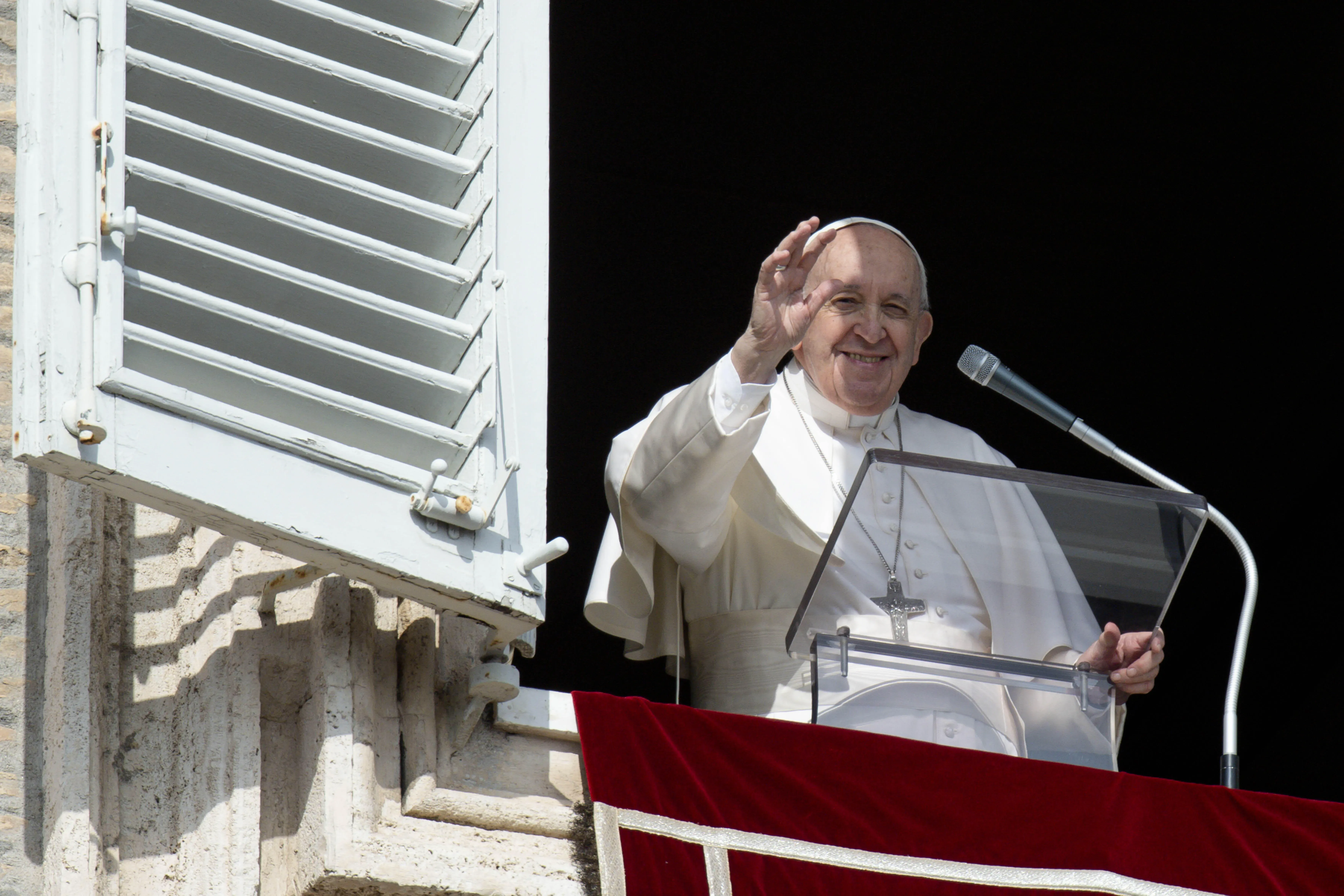These gifts, he explained, “are the gifts of life,” and disciples “are content to share even the goods they possess, because they live according to the logic of God.”
A disciple of Jesus Christ will “accept the paradox of the Beatitudes,” said Pope Francis, meaning that “they declare that those who are poor, who lack many goods and recognize this, are blessed, that is, happy.”
This is in contrast to the “worldly mindset” that possessions, wealth, and other things lead to happiness, he said.
“Jesus, on the contrary, declares worldly success to be a failure, since it is based on a selfishness that inflates and then leaves the heart empty,” said the pope. The disciples, when faced with this “paradox of the Beatitudes,” had to become aware that they must enter into the logic of God, not the other way around.
Entering into the logic of God “requires a journey, sometimes worrisome, but always accompanied by joy,” Pope Francis said. “Because the disciple of Jesus is joyful, with the joy that comes from Jesus.”
True happiness, he said, “is often found where we do not expect it to be” and comes from God “freeing us from the slavery of self-centerdness.”
“Disciples, in the end, are those who let themselves be led by Jesus, who open their heart to Jesus, who listen to him and follow his path,” said the pope.
A disciple of Jesus must become “inwardly unhinged” by the paradox presented in the Beatitudes, and set aside their preconceived notions regarding the source of happiness. Joy, said Pope Francis, comes from following Jesus.
“This is the decisive trait of the disciple: the joy of the heart,” said Francis. “Let’s not forget – the joy of the heart. This is the touchstone for knowing if a person is a disciple: does he or she have joy in the heart? Do I have joy in my heart?”
This joy, he said “is the point.”








